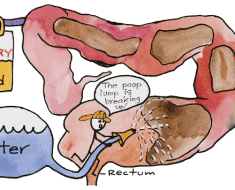All over the world today, scientists have now agreed that brain training can and do improve brain power. Like the comparison of physical exercise being good for the body, brain training can keep older minds to function better, and with a bonus – the benefits can last for years.
According to new studies, participating in interactive games help maintain cognitive functions. Mental activities like reading may delay or prevent memory loss. Even after five years, older adults who had about 10 sessions of supervised brain training had shown long-lasting improvements in memory, reasoning and speed of processing.
Research finds
Another striking feature in the research on brain training is the discovery of evidence of the participants’ transfer of skills to everyday functions. Compared to those untrained, these participants were able to do such skills as cooking, managing finances and using their medications.
Reliable improvements had been noted at 87% in speed training and at 74% in reasoning training. These improvements in mental acuity had been detected for about two years or more by the authorities.
Long-term effects
In short, these improvements in brain abilities (better memory, better problem-solving skills, and better concentration) after training have roughly counteracted cognitive decline that older people (even those without histories of dementia) are known for.
Another bit of good news is that researchers have found out that these cognitive improvements were still detectable even after five years since training. Brain-trained seniors can still outperform those untrained individuals in the mental abilities that they had received instructions before.
Function loss and recovery
Research had also discovered that just like losing muscle mass as a person ages, brain function also begins to decline with the passing of years. This is true to all persons, even those leading healthy normal lives.
Everyone knows that prevention of muscle loss can be done by exercise and the continued use of these muscles over time. In the same token, scientist surmised and were proven correct, brain function loss can also be recovered and improved if it has its own form of exercise.
Neurons
It had been long established by science that neurons (nerve cells) are unique in that they will atrophy and die if they do not receive stimulations (either electrical or chemical) from their neighboring cells.
Conversely, if these neurons are stimulated (by way of new sensations, new knowledge, and new experiences) they develop new neural connections between themselves. Once these connections are established, the neurons will all live and grow more connections.
In illnesses like Alzheimer’s, strokes, and other motor neuron diseases, this self-destruction of neurons can lead to serious consequences. Memory loss, difficulties in comprehension and many other critical mental functions are just some of the sorry results.
“Stick-to-itiveness”
One important factor to brain training is “sticking to it”, especially if you are doing your training by yourself. (Clinics and other rehabilitation centers have their programs and trainings usually done in groups to minimize boredom in the participants.)
Another side note to brain training is to perform them in the morning. It had been noted that mornings are the times when the brain is at its peak level of activity.






